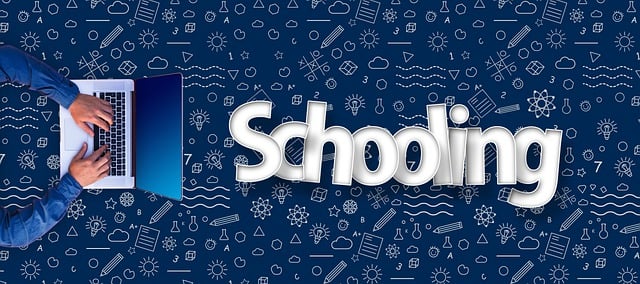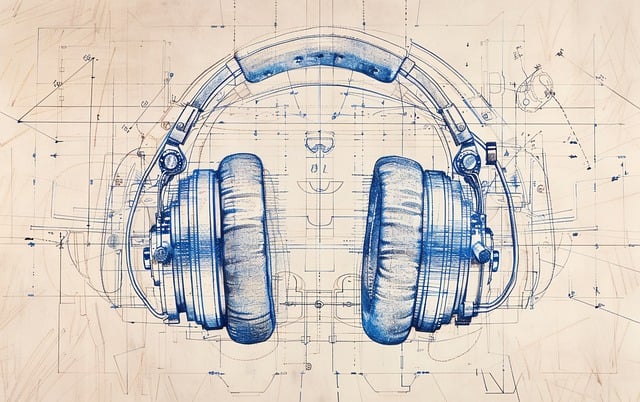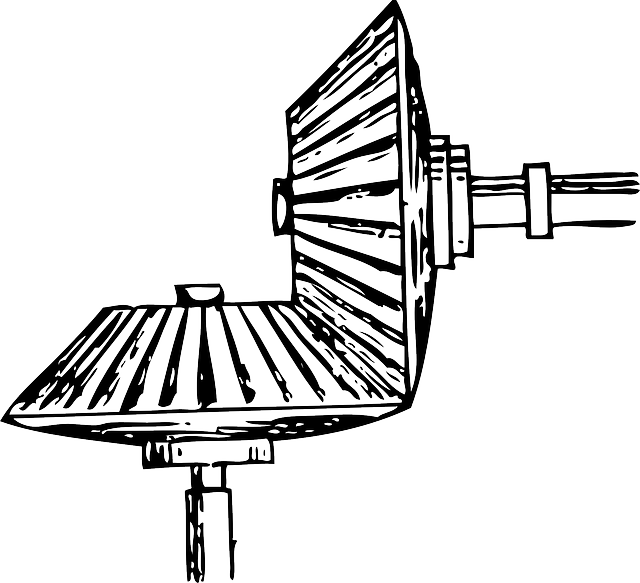Optimizing UK Technical Guidelines: Powering Accuracy with Professional Translations
Translation services play a pivotal role in disseminating and maintaining the accuracy of UK technical guidelines globally. In highly regulated industries, professional translators ensure quality, safety, and compliance by accurately conveying comple…….

Translation services play a pivotal role in disseminating and maintaining the accuracy of UK technical guidelines globally. In highly regulated industries, professional translators ensure quality, safety, and compliance by accurately conveying complex terminology across languages. With the evolving nature of technology, these services bridge communication gaps, creating clear, consistent, and accessible guidelines for diverse audiences worldwide. Choosing the right language professionals with industry knowledge is crucial for optimal results. Leveraging advanced technologies like machine translation and AI integration enhances efficiency and accuracy while catering to the UK market's unique needs. Case studies showcase successful translations, emphasizing professional services' value in navigating legal complexities and ensuring global compliance.
Enhancing the accuracy of UK technical guidelines is paramount for ensuring safety, compliance, and user satisfaction. This comprehensive guide explores the critical role of translation services in streamlining precision across diverse sectors. We delve into common challenges faced in UK technical documentation, highlighting the importance of specialized language professionals. Discover best practices, technological advancements, and real-world case studies showcasing successful translations, all geared towards elevating the quality and consistency of your guidelines while navigating legal and regulatory landscapes.
- Understanding the Importance of Accurate Technical Guidelines
- Challenges in UK Technical Documentation: A Comprehensive Overview
- The Role of Translation Services in Enhancing Accuracy
- Choosing the Right Language Professionals for Technical Translations
- Best Practices for Ensuring High-Quality Translations
- Utilizing Technology to Improve Translation Efficiency
- Case Studies: Successful Translation Projects for UK Guidelines
- Legal and Regulatory Considerations in Technical Documentation Translation
- Future Trends: AI and its Impact on Technical Guideline Accuracy
Understanding the Importance of Accurate Technical Guidelines

Accurate technical guidelines are the backbone of any industry, ensuring quality, safety, and consistency across products and services. In the UK, where technical standards are highly regulated, maintaining precision in guidelines is not just beneficial—it’s crucial. This is particularly true for businesses offering goods or services that require adherence to specific rules, such as manufacturing, engineering, or healthcare sectors.
Translation services play a vital role here, especially when dealing with international markets and diverse customer bases. Accurate translation of UK technical guidelines into other languages not only facilitates global accessibility but also ensures compliance across borders. Professional translators who understand the nuances of both languages and the technical terminology involved are essential to preserving the integrity of the original guidelines. This, in turn, reduces errors, improves understanding, and promotes safer, more efficient practices worldwide.
Challenges in UK Technical Documentation: A Comprehensive Overview

The UK’s technical guidelines and standards, while comprehensive, face significant challenges in terms of consistency and accessibility. With various industries and governmental bodies contributing to this vast body of knowledge, maintaining a unified and error-free document is no easy feat. The complexity intensifies when considering the ever-evolving nature of technology and the need for regular updates. Moreover, ensuring these guidelines are easily understandable across diverse audiences, including specialists and non-experts, poses a further hurdle.
Translation services play a pivotal role in overcoming these obstacles. Professional translators with technical expertise can bridge the gap between complex terminology and everyday language, making guidelines more accessible. Additionally, they ensure that updates and revisions are accurately conveyed across multiple languages, facilitating international compliance. This is especially crucial for UK businesses operating globally or aiming to expand their reach, as it ensures a uniform understanding of standards regardless of language barriers.
The Role of Translation Services in Enhancing Accuracy

The accuracy of UK technical guidelines and standards is paramount, especially in fields where clarity and precision are vital for safety and compliance. While rigorous proofreading and editing are essential, incorporating translation services can significantly enhance overall accuracy. Professional translation ensures that technical content is not just linguistically correct but also maintains its integrity and meaning across languages. This is particularly crucial when guidelines are intended for a global audience or when dealing with complex terms and jargon specific to the UK.
Translation services play a pivotal role in bridging communication gaps, ensuring that technical documentation resonates accurately with diverse linguistic backgrounds. They employ subject matter experts who understand not just the language but also the nuances of the subject matter. This specialized knowledge helps translate technical terminology correctly and conveys the intended message faithfully, thereby minimizing misinterpretations and errors. By leveraging translation services, UK organizations can create guidelines that are clear, consistent, and accessible to all users, ultimately leading to better outcomes and compliance.
Choosing the Right Language Professionals for Technical Translations

When it comes to enhancing the accuracy of UK technical guidelines through translation, selecting the right language professionals is paramount. Look for translators with specialized knowledge in your industry and a proven track record in handling technical documentation. Experience in translating UK standards and regulations is particularly valuable, as these documents often require precise adherence to specific terminology and formatting requirements.
Opting for native speakers who are also subject matter experts can significantly improve the quality of your translations. These professionals not only grasp the nuances of both languages but also possess a deep understanding of technical concepts. This ensures that your translated guidelines remain accurate, consistent, and easily comprehensible for your target audience, thereby strengthening the overall reliability of your documentation.
Best Practices for Ensuring High-Quality Translations

When it comes to UK technical guidelines and standards, accurate translations are non-negotiable. To ensure high-quality results, organisations should stick to best practices in their approach. Firstly, engage professional translation services with a proven track record in technical documentation. These specialists will possess the linguistic skills and industry knowledge required to capture nuanced meanings accurately.
Additionally, implement a structured process involving multiple rounds of review. This could include initial machine translation, followed by human review for accuracy, tone, and terminology consistency. Remember that context matters; complex concepts need careful handling. By combining expertise with a rigorous workflow, you can achieve reliable translations that maintain the integrity of your UK technical guidelines.
Utilizing Technology to Improve Translation Efficiency

In today’s digital era, leveraging technology is a game-changer for enhancing the accuracy and efficiency of translation services for UK technical guidelines and standards. Advanced tools like machine translation (MT) platforms can significantly streamline the process by providing quick, initial drafts that human translators can then refine and polish. These platforms are capable of translating entire documents in minutes, ensuring consistency across various terms and phrases used within the UK’s technical landscape.
Additionally, technology offers sophisticated features such as memory management systems that track previously translated segments, preventing repetitive translations and improving productivity. The integration of Artificial Intelligence (AI) further enhances these capabilities by enabling translators to focus on complex linguistic nuances while the AI handles simpler, more straightforward text. This collaboration between human expertise and AI ensures highly accurate, culturally adapted translations tailored to the UK market.
Case Studies: Successful Translation Projects for UK Guidelines

When enhancing the accuracy of UK technical guidelines, case studies offer valuable insights into successful translation projects. Many organisations have navigated the complexities of translating technical documents for diverse audiences, demonstrating best practices that can be replicated. For instance, a leading automotive company effectively translated detailed engineering standards from British English to European languages, ensuring consistency and precision across markets. This involved not just linguistic expertise but also a deep understanding of industry-specific terminology and regulatory requirements.
These case studies highlight the importance of professional translation services tailored for UK technical guidelines and standards. By learning from successful projects, you can avoid common pitfalls, such as literal translations that miss cultural nuances or oversimplify complex concepts. Expert translators not only bridge linguistic gaps but also ensure your guidelines are accessible, clear, and compliant with international standards, thereby enhancing their accuracy and effectiveness.
Legal and Regulatory Considerations in Technical Documentation Translation

When translating UK technical guidelines and standards, it’s crucial to factor in legal and regulatory considerations. This involves understanding not just language nuances but also the specific legal framework that governs the industry or sector being addressed. For instance, certain terminology might have different connotations or interpretations across languages, which can impact compliance with local laws and regulations.
Translation services for UK technical guidelines must therefore employ professionals who are not only linguistically proficient but also well-versed in the relevant legal and regulatory landscape. This expertise ensures that the translated content accurately conveys the intended meaning while adhering to the stringent requirements set by UK authorities, fostering confidence among users and stakeholders across international markets.
Future Trends: AI and its Impact on Technical Guideline Accuracy

As technology advances, Artificial Intelligence (AI) is set to revolutionize the way we create and maintain technical guidelines. AI-powered tools can analyze vast amounts of data, identify patterns, and make accurate predictions, leading to more precise and up-to-date guidelines. For instance, AI can assist in translating UK Technical Guidelines and Standards into various languages, ensuring global accessibility and understanding. This technology can also automate the process of updating guidelines based on new research or industry developments, reducing human error and saving significant time.
Moreover, natural language processing (NLP) capabilities within AI allow for intelligent content generation and optimization. These systems can learn from existing guidelines, understand context, and provide recommendations to improve clarity and consistency. This proactive approach can enhance the overall quality of technical documentation, making it easier for professionals worldwide to interpret and implement UK-based standards accurately.
Ensuring accurate UK technical guidelines is paramount for effective communication, compliance, and safety. By addressing challenges through strategic translation services, leveraging technology, and implementing best practices, organizations can significantly enhance the quality of their translations. Choosing the right language professionals and staying informed about legal considerations and AI advancements further solidifies the accuracy and reliability of these essential documents. Translation services for UK technical guidelines and standards play a pivotal role in fostering clear, precise, and compliant communication across diverse industries.






